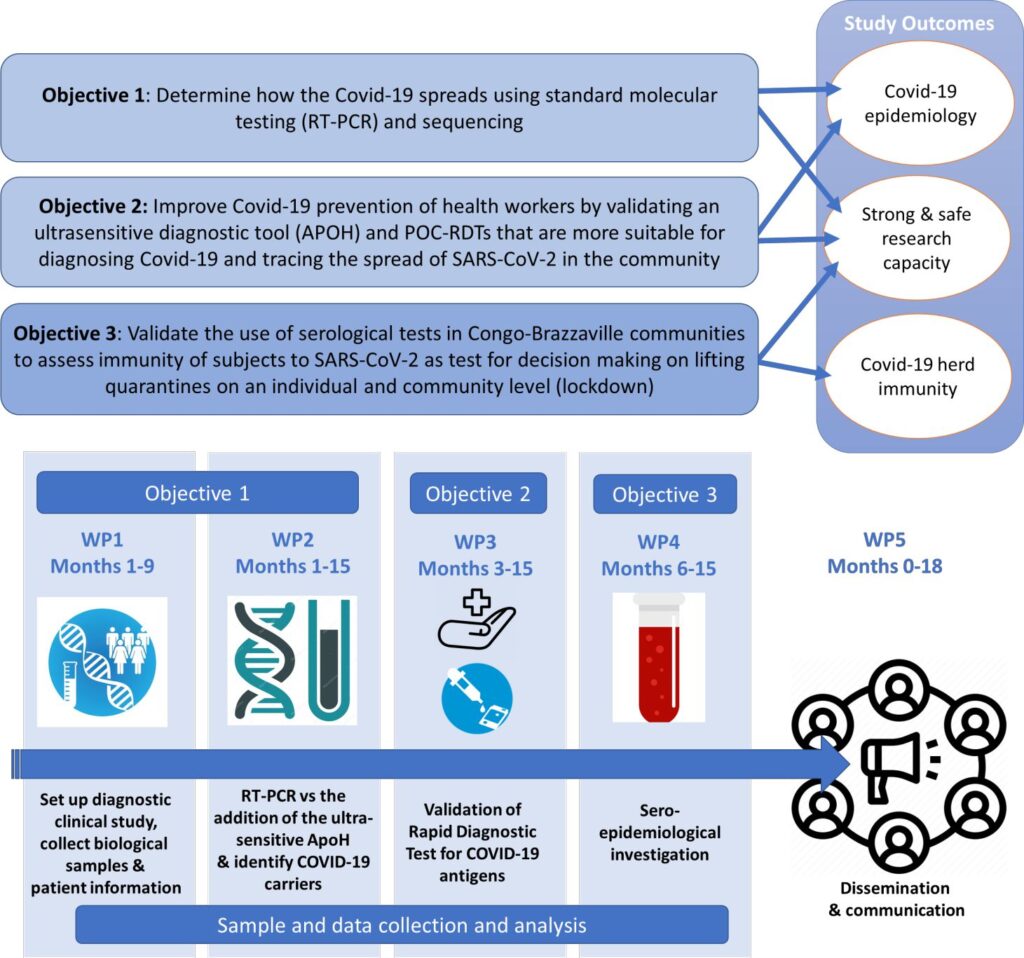This project is part of the EDCTP2 programme supported by the European Union (EDCTP grant number RIA2020EF-2947-ITAIL-COVID-19).
The aim is to address the novel coronavirus (Covid-19) ticking time bomb as rapidly as possible in Congo-Brazzaville by evaluating, improving and using Covid-19 diagnostics to gain knowledge about the spread of the virus and strengthen the country’s national surveillance system.
The project will be performed by partners from Republic of Congo (Fondation Congolaise pour la Recherche Médicale, FCRM, in collaboration with local governamental research institutions as Institut de Recherche en Sciences de la Santé and Laboratoire National de Santé Publique, LNSP), Germany (Bernard Nocht Institute for Tropical Medicine BNITM), France (Institut de Recherche pour le Développement, IRD), UK (R-Evolution Worldwide Community Interest, R-Evolution) and the Belgium (Coris BioConcept, a Belgian SME).
The importance and relevance of the proposal activities
Our main objective is to understand Covid-19 epidemiology in Congo-Brazzaville, a low-income country where the health system is weak, and reinforce the national surveillance system of the country to provide a rapid solution to the fast-spreading virus. This will be addressed by achieving the following specific objectives:
Objective 1: Determine how the Covid-19 spreads through semi-rural and urban communities using standard molecular testing (RT-PCR) and sequencing.
Objective 2: Improve Covid-19 prevention of health workers by validating an ultrasensitive diagnostic tool (APoH RT-PCR) and point-of-care antigenic rapid diagnostic tests (Ag-RDT) that are more suitable for diagnosing Covid-19 in the community. The high sensitivity of ApoH RT-PCR in combination with point-of-care Ag-RDT will establish a faster and widespread approach to identify acute infections cases.
Objective 3: combined with the objectives 1 and 2, the implementation of serological tests in Congo-Brazzaville to trace the spread of SARS-CoV-2 in community and to assess immunity of subjects to SARS-CoV-2 to have evidence-based decisions making on lifting quarantines on an individual and community level (lockdown).

